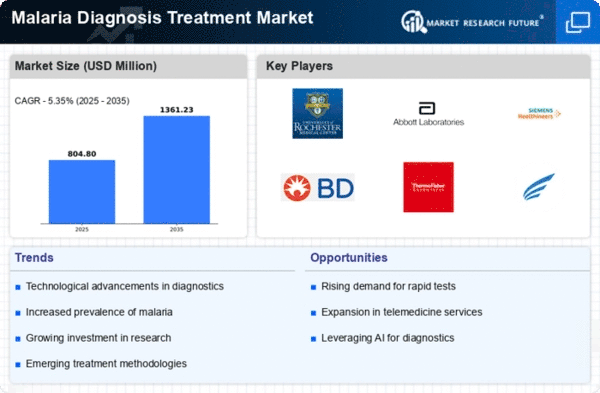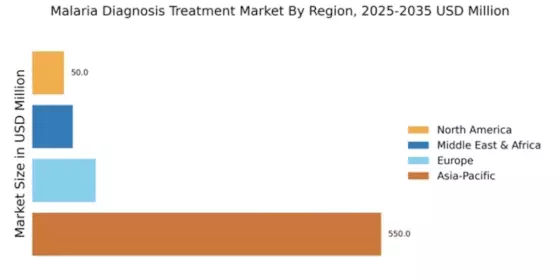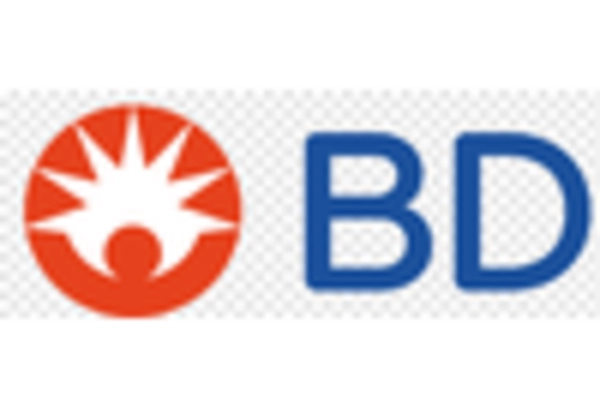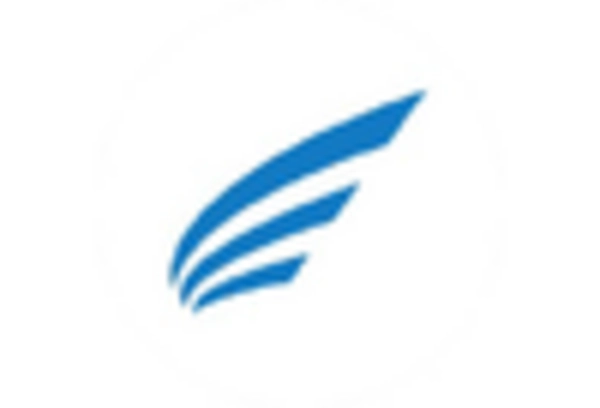Rising Awareness and Education
Rising awareness and education regarding malaria prevention and treatment are crucial drivers of the Global Africa Malaria Diagnosis and Treatment Market Industry. Public health campaigns and educational programs are increasingly emphasizing the importance of early diagnosis and effective treatment. This heightened awareness leads to increased demand for diagnostic services and antimalarial medications. Organizations such as the World Health Organization are actively promoting education on malaria, which is likely to result in more individuals seeking timely medical intervention. As awareness grows, the market is expected to expand, with projections indicating a market value of 3.43 USD Billion by 2035, highlighting the long-term potential of this sector.
Increasing Prevalence of Malaria
The Global Africa Malaria Diagnosis and Treatment Market Industry is significantly influenced by the rising incidence of malaria across various regions in Africa. In 2024, the market is valued at approximately 0.98 USD Billion, reflecting the urgent need for effective diagnostic tools and treatment options. Countries like Nigeria and the Democratic Republic of the Congo report high malaria cases, necessitating enhanced healthcare interventions. This growing prevalence drives investments in innovative diagnostic technologies and treatment methodologies, aiming to reduce the disease burden. As awareness increases, the demand for rapid diagnostic tests and antimalarial drugs is expected to surge, further propelling market growth.
Government Initiatives and Funding
Government initiatives play a pivotal role in shaping the Global Africa Malaria Diagnosis and Treatment Market Industry. Various African governments, alongside international organizations, are committing substantial resources to combat malaria. For instance, funding for malaria control programs has seen a notable increase, with initiatives aimed at improving diagnostic capabilities and treatment accessibility. These efforts are crucial in regions where malaria remains endemic. The financial backing from governments is likely to enhance the availability of rapid diagnostic tests and effective treatments, thereby fostering a more robust healthcare infrastructure. This collaborative approach is expected to significantly impact market dynamics in the coming years.
Emerging Partnerships and Collaborations
Emerging partnerships and collaborations among stakeholders are shaping the Global Africa Malaria Diagnosis and Treatment Market Industry. Collaborative efforts between governments, non-governmental organizations, and private sector entities are fostering innovation and resource sharing. These partnerships aim to enhance research and development of new diagnostic tools and treatment options, addressing the unique challenges posed by malaria in Africa. By pooling resources and expertise, stakeholders can accelerate the development and distribution of effective solutions. This collaborative approach is likely to enhance the overall effectiveness of malaria control strategies, contributing to a more sustainable market environment.
Technological Advancements in Diagnostics
Technological advancements are transforming the Global Africa Malaria Diagnosis and Treatment Market Industry, particularly in the realm of diagnostics. Innovations such as molecular diagnostics and rapid diagnostic tests are becoming increasingly prevalent, enabling quicker and more accurate malaria detection. These technologies not only improve patient outcomes but also facilitate timely treatment, which is essential in managing malaria effectively. The integration of mobile health technologies further enhances access to diagnostic services in remote areas. As the market evolves, it is anticipated that these advancements will contribute to a compound annual growth rate of 12.1% from 2025 to 2035, reflecting the growing reliance on technology in healthcare.

















